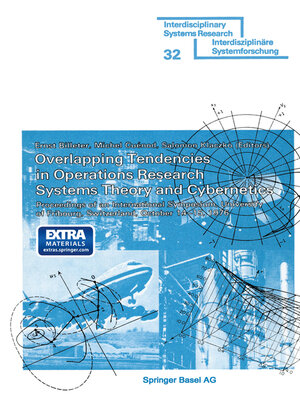Overlapping Tendencies in Operations Research Systems Theory and Cybernetics
ebook ∣ Proceedings of an International Symposium, University of Fribourg, Switzerland, October 14–15, 1976 · Interdisciplinary Systems Research
By BILLETER

Sign up to save your library
With an OverDrive account, you can save your favorite libraries for at-a-glance information about availability. Find out more about OverDrive accounts.
Find this title in Libby, the library reading app by OverDrive.



Search for a digital library with this title
Title found at these libraries:
| Library Name | Distance |
|---|---|
| Loading... |
0.1 Gaps in Optimizing A comparison of the levels of development of Operations Research, Simulation Technique and Optimal Control Theory appears to gain increasing interest. Operations Research Sciences achieved very high mathematical standards and solved a great amount of important optimization problems, mainly at the level of management of private corporation and civil or military government tasks, however, these achievements are seldom incorporated in the mathematical curriculum of modern universities. Nevertheless, Operations Research seems to have failed in solving long range or strategical problems as they arise in any broader social, economical or political context (MUller-Merbach, 1976). Also for the weakest task, namely that of improving theory building, system simulation works as an optimization tool. Simulation models of large complex systems, like socio economical or political ones, failed until now to fit large empirical data bases. This was, in fact, one of the few serious objections against the form in which Forrester solved some problems modelling and simulating urban and world de velopments (Forrester, 1969; Forrester, 1971; IEEE-SCC October 197o; IEEE-SMC April 1972; Mass, 1974; Schroeder, 1975).







